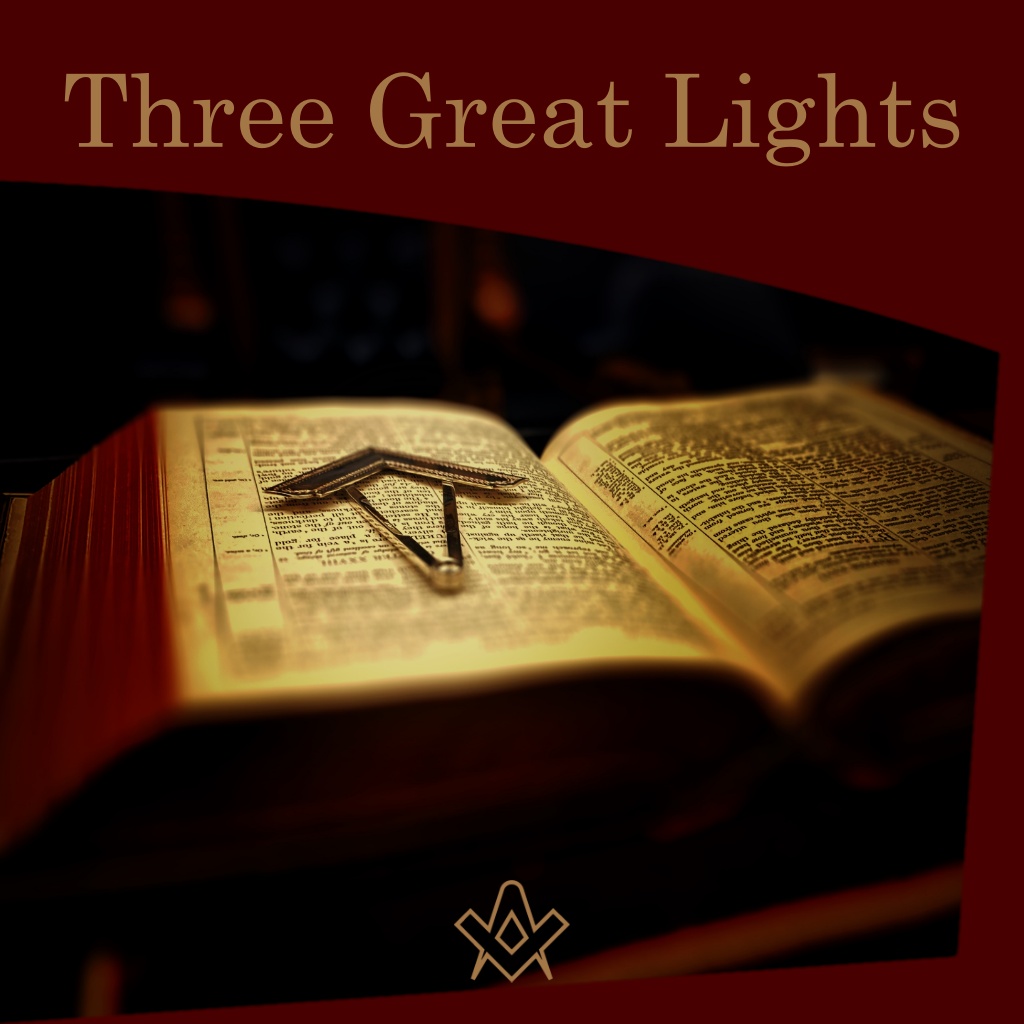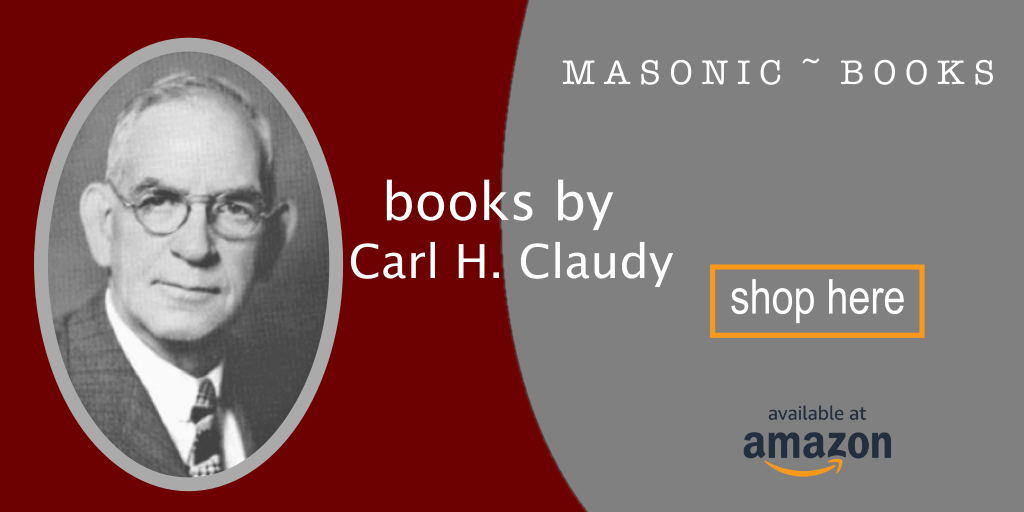There are three great lights – the Holy Bible, the Square, and the Compasses.
The Holy Bible is always referred to as “The Great Light” or “The Great Light in Masonry,” in this country which is predominantly Christian. The practice may be and often is different in other lands.
What is vital and unchangeable, a Landmark of the Order is that a Volume of the Sacred Law (V.S.L) be open upon the Masonic altar whenever the lodge is open.
A lodge wholly Jewish may prefer to use only the Old Testament; in Turkey and Persia the Koran would be used as the V.S.L. of the Mohammedan; Brahmins would use the Vedas.
In the Far East where Masonic lodges have members of many races and creeds it is customary to have several holy books upon the altar that the initiate may choose that which is to him the most sacred.
The Holy Bible, our Great Light in Masonry, is opened upon our altars. Upon it lie the other Great Lights – the Square and the Compasses.
Without all three no Masonic lodge can exist, much less open or work. Together with the warrant from the Grand Lodge they are indispensable.
The Bible on the altar is more than the rule and guide of our faith. It is one of the greatest of Freemasonry’s symbols.
For the Bible is here a symbol of all holy books of all faiths. It is the Masonic way of setting forth that simplest and most profound of truths which Masonry has made so peculiarly her own: that there is a way, there does run a road on which men “of all creeds and of every race” may travel happily together, be their differences of religious faith what they may.
In his private devotions a man may petition God or Jehovah, Allah or Buddha, Mohammed or Jesus; he may call upon the God of Israel or the Great First Cause.
In the Masonic Lodge he hears humble petition to the Great Architect of the Universe, finding his own deity under that name.
A hundred paths may wind upward around a mountain; at the top they meet.
Freemasonry opens the Great Light upon her altar not as one book of one faith, but as all books of all faiths, the book of the Will of the Great Architect, read in what language, what form, what shape we will. It is as all-inclusive as the symbols which lie upon it.
The Square is not for any one lodge, any one nation, any one religion – it is for all Masons, everywhere, to all of whom it speaks the same tongue.
The Compasses circumscribe the desires of Masons wheresoever dispersed; the secret of the Square, held between the points of the Compasses is universal.
Countless references in our ritual are taken from the Old Testament. Almost every name in a Masonic lodge is from the Scriptures.
In the Great Light are found those simple teachings of the universality of brotherhood, the love of God for his children, the hope of immortality, which are the very warp and woof of Freemasonry.
Let it be emphasized; these are the teachings of Freemasonry in every tongue, in every land, for those of every faith.
Our Great Light is but a symbol of the Volume of the Sacred Law . Freemasonry is no more a Christian organization than it is Jewish or Mohammedan or Brahmin.
Its use of the collection of sacred writings of the Jews (Old Testament) and the Gospels of the New Testament as the Great Light must not confuse the initiate so that he reads into Freemasonry a sectarian character which is not there.
This is so well understood that it needs emphasis only for the novice.
To give him specific facts as well as assertion: the Bible is first mentioned as a Great Light in Masonry about 1760, whereas the first of the Old Charges (one of the foundation stones on which rest the laws of Freemasonry, first published in 1723, but presumably adopted by the Mother Grand Lodge at its formation in 1717) reads in part as follows (spelling modernized):
A Mason is obliged by his tenure to obey the moral law; and if he rightly understands the art, he will never be a stupid atheist, nor an irreligious libertine. But though in ancient times Masons were charged in every country to be of the religion of that country or nation, whatever it was, yet ’tis now thought more expedient only to oblige them to that religion in which all men agree, leaving their particular opinions to themselves; that is, to be good men and true, or men of honour and honesty, by whatever denominations or persuasions they may be distinguished; whereby Masonry becomes the centre of union and the means of conciliating true friendship among persons that must have remained at a perpetual distance.
Perhaps never before has so short a paragraph had so profound an effect, setting forth the non-sectarian, non-doctrinal character of Freemasonry, making religion, not a religion, the important matter in the Ancient Craft.
Article by: Carl H. Claudy
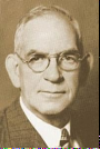
Carl Harry Claudy (1879 – 1957) was an American author, magazine writer, and journalist for the New York Herald.
His association with Freemasonry began in 1908, when, at the age of 29, he was raised a master Mason in lodge Harmony No. 17 in Washington, DC. He served as its master in 1932 and eventually served as Grand Master of Masons in the District of Colombia in 1943.
His Masonic writing career began in earnest when he became associated with the Masonic service Association in 1923, serving as associate editor of its magazine, The master mason, until 1931.
Under his leadership the service Association was brought to a place of predominance through his authorship and distribution of the short talk bulletin which made his name familiar to virtually every lodge in the country.
 Old Tiler Talks - Eyes Lifted High The Old Tiler Talks first published in 1925, by Carl Claudy, is a series of short anecdotal stories told in the setting of a new member asking an old tiler for his opinion on various masonic topics. These short articles are still very relevant, 100 years on, and hopefully provide some insight to new members today. |
 Old Tiler Talks - Masonic Libraries The Old Tilers talks first published in 1925, by Carl Claudy, is a series of short anecdotal stories told in the setting of a new member asking an old tiler for his opinion on various masonic topics. These short articles are still very relevant, 100 years on, and hopefully provide some insight to new members today. |
 Old Tiler Talks - So Many Rascals "Why are there so many rascals in the Fraternity, and why don't we turn them out?" a new member voiced to the old tiler for his opinion. These short articles are still very relevant, 100 years on, and hopefully provide some insight to new members today. |
 Old Tiler Talks - The Greatest Work The Old Tiler asked, "what is the greatest work of Masonry?" The New Brother sat by the guardian of the door and pulled out his cigar case. - Another instalment of wisdom by Carl Claudy, The Greatest Work |
 Old Tiler Talks - Why Men Love Freemasonry The 'Old Tiler Talks' first published in 1925, by Carl Claudy, is a series of short anecdotal stories told in the setting of a new member asking an old Tiler for his opinion on various Masonic topics. These short articles are still very relevant, 100 years on, and hopefully provide some insight to new members today. |
 Old Tiler Talks - Seeking a Little Light The Old Tilers talks first published in 1925, by Carl Claudy, is a series of short anecdotal stories told in the setting of a new member asking an old tiler for his opinion on various masonic topics. These short articles are still very relevant, 100 years on, and hopefully provide some insight to new members today. |
 The new mason laments that practically speaking, Masonry is a failure, and it depresses me … Masonry cannot be a failure, because men fail as Masons. The Old Tilers talk by Carl Claudy |
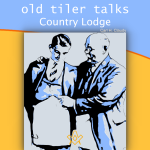 Old Tiler Talks - Country Lodge A lesson in the importance of an open mindset to observe, not to judge, but to learn and accept that we can achieve the desired outcome employing a different process. by Carl Claudy |
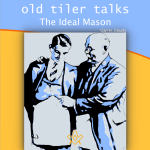 Old Tiler Talks - The Ideal Mason "What's your ideal of Freemasonry?" asked the Younger Mason - A short anecdotal story told in the setting of a new member asking an old tiler for his opinion on various masonic topics by Carl Claudy |
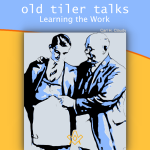 Old Tiler Talks - Learning the Work A short anecdotal story told in the setting of a new member asking an old tiler for his opinion on various masonic topics by Carl Claudy |
 Masonic first appointments and promotions might appear to be inequitable for one point a view, but some times, one point does not show the whole picture. A perfectly articulated story by Claudy, we should not compare one persons abilities with another. |
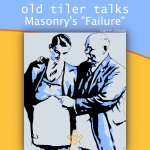 Old Tiler Talks - Masonry's 'Failure' Masonry fails because it doesn’t interest men sufficiently to make them practice what they preach. A perfectly articulated story by Claudy Masonry does not fail men. Men fail Masonry. Masonry has the teachings. |
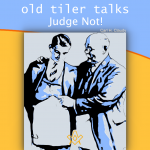 A perfectly articulated story by Claudy reminds us of a lesson from the Second Degree Charge; in the decision of every trespass against our rules, judge with candour, admonish with friendship, and reprehend with mercy. |
 Old Tiler Talks - A Masonic Speech A Masonic Speech - I can tell you the essence of appeal. It is drama. If you want your hearers to hang on your words, dramatize your subject |
 Old Tiler Talks - A Mason's Christmas A Mason's Christmas - Do you believe in Christmas celebrations should be held by the lodge ? Should members be asked to contribute to one and engage in Christmas festivities ? What is the old tilers take on this ? |
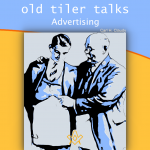 Advertising - We would do more good in the world if we advertised ourselves more… Why ? |
 Uncover the mystery behind one of the oldest and most widespread symbols denoting God. |
 Do you want to discover the originals of the five points of fellowship ? |
 The mystery behind the two great pillars that stood at the porchway entrance of King Solomon Temple |
 Three numbers, what are their masonic significance? Pythagoras has something to say about them |
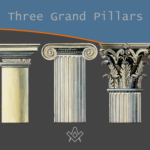 What are the Three Grand Pillars ?, wisdom, strength, and beauty - then later we hear of the Doric, Ionic, and Corinthian columns |
 This emblem contains more real food for thought than any other in the lecture of the Sublime Degree. |
 The Hiramic Legend is the glory of Freemasonry; the search for that which was lost is the glory of life |
 How are the Fellowcraft's five steps connected the five senses of human nature |
 How to explain the principle tents of the craft to a newly made brother |
 What are the lesser lights and where are they placed on our Lodges |
 Like so much else in Freemasonry the Middle Chamber is wholly symbolic |
 In the true sense of the words Freemasonry is not a secret society but a society with secrets. |
 Three Great Lights – the Volume of the Sacred Law, the Square, and the Compasses |
 Entered Apprentice Lambskin Apron; More ancient than the Golden Fleece or Roman Eagle, more honourable than the Star and Garter ... |
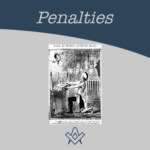 To the initiate, the penalty in his obligation comes with a shock of surprise and sometimes consternation. |
 What is a point within a circle |
masonic knowledge
to be a better citizen of the world
share the square with two brothers

click image to open email app on mobile device



